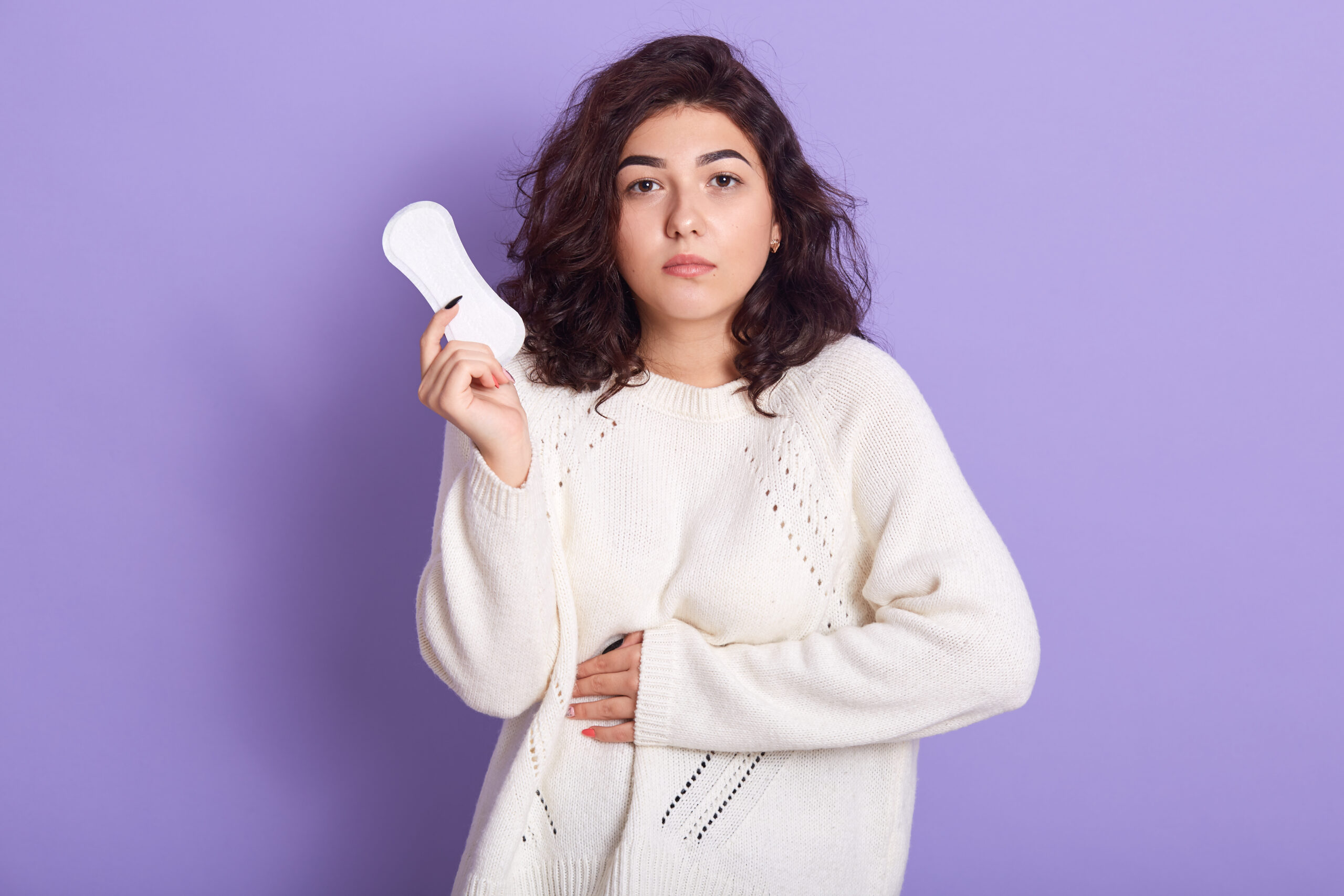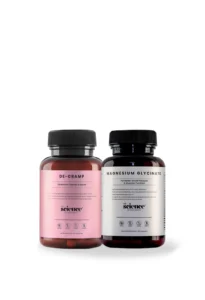If you’ve been looking for how to treat irregular periods, you’re not alone. Irregular cycles are one of the most common women’s health concerns, and they can leave you feeling confused, anxious, or even worried about your long-term health. The good news is that there are proven ways to bring your menstrual cycle back into rhythm, both through natural remedies and medical treatments.
An irregular cycle is more than just a minor inconvenience. It can affect your mood, energy levels, fertility, and overall sense of well-being. For some women, irregular periods are caused by medical conditions like PCOS or thyroid imbalance. For others, stress, poor diet, or lack of sleep may be the culprit.
In this guide, we’ll explore how to treat irregular periods holistically with lifestyle adjustments, herbal remedies, and medical options when necessary. By the end, you’ll know exactly what steps to take to restore balance and regain control over your body.
What Are Irregular Periods?
Before learning how to treat irregular periods, it’s important to understand what makes a period “irregular.” A typical menstrual cycle lasts between 21 and 35 days, with bleeding lasting 3 to 7 days. When your cycles consistently fall outside of this range, or vary unpredictably, they are considered irregular.
Signs your period may be irregular:
- Menstrual cycles shorter than 21 days or longer than 35 days
- Missed periods or skipped cycles without pregnancy
- Extremely heavy bleeding or very light spotting instead of a full flow
- Unpredictable cycle lengths month after month
- Severe pain or clotting during menstruation
A healthy cycle moves through four phases: menstrual, follicular, ovulation, and luteal. Each phase is guided by delicate hormonal shifts. When these hormones are disrupted, irregular cycles can occur. That’s why learning how to treat irregular periods often means restoring hormonal balance through nutrition, stress management, and medical care when required.
Causes of Irregular Periods
Irregular cycles can result from both medical conditions and lifestyle habits. Understanding the root cause is the first step in learning how to treat irregular periods effectively.
Common Medical Causes
- Polycystic Ovary Syndrome (PCOS): One of the leading causes of irregular cycles, caused by hormonal imbalances and excess androgen production.
- Thyroid Disorders: Both hypothyroidism (underactive thyroid) and hyperthyroidism (overactive thyroid) interfere with menstrual regularity.
- Endometriosis and Fibroids: These structural conditions often cause heavy, painful, and irregular bleeding.
- Perimenopause: As estrogen levels fluctuate in the years before menopause, cycles may become irregular.
Lifestyle and Environmental Causes
- Stress and Cortisol Imbalance: Chronic stress delays ovulation and disrupts hormonal patterns.
- Poor Nutrition or Crash Dieting: Sudden weight loss or nutrient deficiencies can interfere with reproductive hormones.
- Over-Exercise or Sedentary Lifestyle: Both extremes negatively impact cycle health.
- Lack of Sleep: Poor sleep affects melatonin and cortisol, which indirectly influence reproductive hormones.
When addressing how to treat irregular periods, it’s crucial to consider both medical and lifestyle factors, since they often work together.
How to Treat Irregular Periods Naturally
Many women prefer natural solutions before turning to medications. Holistic wellness emphasizes treating root causes instead of just symptoms. Here’s how you can begin.
Lifestyle Adjustments
- Stress Reduction: Practices like yoga, meditation, journaling, and breathwork lower cortisol levels and restore hormonal balance.
- Balanced Diet: Eating whole foods, rich in iron, B vitamins, and omega-3 fatty acids, supports reproductive health. Avoid highly processed foods, excessive caffeine, and refined sugar.
- Regular, Moderate Exercise: Activities like walking, cycling, or gentle strength training improve blood circulation and help regulate hormones without over-stressing the body.
- Maintaining a Healthy Weight: Both obesity and being underweight disrupt ovulation and estrogen production.
Natural Remedies and Supplements
- Cinnamon: Shown in studies to help regulate cycles in women with PCOS.
- Ginger: Known for anti-inflammatory properties and supporting menstrual health.
- Turmeric: Helps in balancing hormones and reducing period pain.
- Vitamin D: Essential for reproductive health and regulating hormones.
- Magnesium and Zinc: Support hormone production and reduce PMS symptoms.
- Hydration and Mindful Eating: Staying hydrated aids circulation and digestion, helping the body absorb nutrients that regulate cycles.
Adopting these practices shows you how to treat irregular periods naturally while also improving overall health, mood, and energy.
Medical Treatments for Irregular Periods
Sometimes, natural remedies are not enough, especially if an underlying medical condition exists. Medical treatments may be required to regulate cycles.
- Hormonal Birth Control Pills: Help regulate cycles, reduce heavy bleeding, and manage hormonal imbalance.
- Hormone Therapy: Used in cases of thyroid disorders or menopause-related irregularities.
- NSAIDs (Non-steroidal Anti-inflammatory Drugs): Reduce heavy bleeding and manage pain.
- Tranexamic Acid: A non-hormonal medication that reduces heavy menstrual bleeding.
- Surgical Options: Procedures like fibroid removal or endometrial ablation are considered only in severe cases.
- Diagnostic Tests: Blood tests, ultrasounds, and biopsies help identify the exact cause of irregular cycles.
Medical treatments work quickly, but they usually manage symptoms rather than resolve underlying issues. Combining medical care with holistic practices is often the most effective way of learning how to treat irregular periods long-term.
Preventing Irregular Periods
Prevention is better than cure. Simple lifestyle shifts can protect cycle health and reduce the likelihood of irregularities.
- Track your cycle with apps to detect patterns and irregularities early.
- Schedule routine health checkups for thyroid, PCOS, and reproductive health.
- Prioritize sleep, aim for 7 to 8 hours every night.
- Avoid exposure to endocrine disruptors found in plastics, pesticides, and chemical-laden products.
- Stay physically active with consistent but moderate exercise.
These habits not only teach you how to treat irregular periods but also help prevent them from recurring.
When to See a Specialist
Knowing when to seek medical help is crucial. You should see a doctor if:
- You miss periods for more than 3 consecutive months.
- Your periods are excessively heavy, with clots larger than a coin.
- You experience extreme cramps or pelvic pain.
- You’re trying to conceive but cycles are irregular.
- You have additional symptoms such as hair loss, sudden weight changes, or constant fatigue.
A specialist can help diagnose the root cause and guide you toward the most effective treatment plan for your situation.
Living with Irregular Periods: A Holistic Perspective
Living with irregular cycles can be emotionally draining, but holistic care provides both physical and emotional support. Wellness isn’t only about regulating periods; it’s about achieving balance in all areas of life.
- Emotional Well-being: Practices like journaling, therapy, or group support can reduce stress.
- Holistic Healing: Combining herbal remedies, clean nutrition, and medical care provides a complete approach.
- Empowerment: Understanding your body empowers you to take charge of your reproductive health.
This perspective helps you not only learn how to treat irregular periods but also how to live a healthier, more balanced life overall.
Alongside lifestyle practices, some women also find support through supplements. One trusted option is the Hormone Balance for Women supplement by The Science of Good Health. It is designed to support menstrual regularity, fertility, and peri-menopausal health naturally.
Take the Next Step Toward Hormonal Balance
If you’ve been struggling with unpredictable cycles, heavy bleeding, or PCOS-related symptoms, remember that irregular periods don’t have to control your life. The real solution lies in addressing the root cause, through food, lifestyle, and holistic healing.
At Smriti Kochar’s Ultra-Wellness Program, thousands of women have already discovered how to treat irregular periods naturally, without relying on medicines. With a 98% success rate, this program restores hormonal balance in just 4–6 months, helping you reclaim your energy, confidence, and fertility.
Conclusion
The journey of discovering how to treat irregular periods involves more than taking a pill or waiting for your body to adjust. It requires a comprehensive approach that blends natural remedies, lifestyle changes, and medical treatments where necessary.
By being consistent and patient, most women can restore balance to their cycles within a few months. The key is listening to your body, addressing root causes, and seeking professional guidance when required.
Irregular periods are not permanent; with the right care, you can bring back harmony and enjoy renewed vitality.
Read Our Latest Blogs
Reasons for Irregular Periods | Irregular Periods Treatment for Unmarried | Irregular Periods After Delivery | Irregular Periods Solution | My 15 Year Old Daughter Has Irregular Periods | Why Irregular Periods Happen
Frequently Asked Questions
Ans: For immediate relief, doctors may prescribe hormonal birth control or medication. However, long-term results come from lifestyle changes, stress reduction, and proper nutrition.
Ans: Home remedies include practicing yoga, eating a nutrient-rich diet, drinking herbal teas (ginger or cinnamon), and ensuring good sleep hygiene.
Ans: Yes. Stress raises cortisol, which delays ovulation and disrupts hormonal rhythms, often leading to missed or late periods.
Ans: PCOS-related irregularities can be managed with balanced nutrition, weight management, exercise, and sometimes medication prescribed by a doctor.
Ans: Yes. If ovulation is irregular, it becomes harder to predict fertile windows, which may delay conception. Treating the root cause improves fertility chances.
Ans: With consistent lifestyle changes, most women notice improvements in 3 to 6 months. Severe cases may take longer and require medical support.
Ans: Leafy greens, whole grains, nuts, seeds, fatty fish, and iron-rich foods help balance hormones and support menstrual health.
Ans: If you miss cycles for more than 3 months, experience excessive pain, very heavy bleeding, or are worried about fertility, consult a gynecologist.






